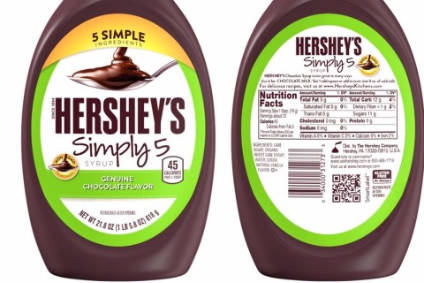
The Hershey Trust, which owns over 80% of the US confectioner’s voting rights, has reached an agreement with the Pennsylvania Attorney General’s office to settle concerns over its governance – and there could be consqeuences for Mondelez International’s interest in the Reese’s maker.
The affairs of the trust, set up by Hershey founder Milton Hershey to look after the interests of the Milton Hershey School, have been under scrutiny amid allegations over how its money is spent and it is governed. Last week, a deal was struck over how the trust is run and food industry watchers are weighing up what impact that could have on the ownership of the Hershey business, not least because the trust is said to have stymied two attempts to buy the chocolate maker in the last 15 years.

Discover B2B Marketing That Performs
Combine business intelligence and editorial excellence to reach engaged professionals across 36 leading media platforms.
The compensation for members of the trust’s board will now be subject to a “simplified calculation” that will see director pay reduced; three board members will retire this year with a further two will stand down at the end of next year; and the number of board members will increase from nine to 13.
Velma Redmond, chairman of the joint board for the Hershey Trust and the Milton Hershey School, wrote in an open letter: “The boards now move forward, working cohesively and collaboratively, as we direct, support and fulfil the ongoing mission of the Milton Hershey School.”
The trust is believed to be a major stumbling block preventing Mondelez’s takeover approach for Hershey from getting further consideration last month. And, while the bid was rejected, some have speculated Mondelez could be tempted to raise its offer price further.
Last week, Mondelez announced its second-quarter results and Irene Rosenfeld, the company’s chairman and CEO, sought to head off any potential questions from analysts on the issue. “While I can confirm that we did make an offer to Hershey, as you would expect regarding any potential M&A activity, we have no additional comments to make,” Rosenfeld said.

US Tariffs are shifting - will you react or anticipate?
Don’t let policy changes catch you off guard. Stay proactive with real-time data and expert analysis.
By GlobalDataAt Sanford Bernstein, analyst Alexia Howard suggested Rosenfeld’s refusal to discuss Hershey meant Mondelez could be ready to return to the table. “We are concerned that management’s silence on the Hershey issue might indicate they plan on making a new, higher bid. We would view any such bid negatively, especially if they turned to tax-inefficient asset sales to limit equity issuance and thus prevent a shareholder vote.”
What does the agreement between the Hershey Trust and the Pennsylvania attorney general mean for Mondelez?
With a fresh board, it is possible the trust could be more amenable to a future takeover offer. Mondelez made a number of non-monetary concessions – such as relocation to Hershey, Pennsylvania, and changing the expanded company’s corporate name to Hershey. The trust would also retain a stake in an enlarged business – although it would lose control of a business in which it has a majority of voting shares.
In some respects, selling up would make sense for the trust because it would enable it to diversify its interests. Hershey is, after all, struggling to maintain its top-line momentum and once again lowered its sales guidance last week. Access to Mondelez’s distribution channels in emerging markets would be an obvious win for a brand already widely known around the world despite relatively limited distribution outside of a handful of focus markets.
While Hershey might be grappling with some strategic issues of its own right now, Redmond stood by the financial performance of the trust’s investments.
“There is also encouraging news concerning Mr. and Mrs. Hershey’s requirement that the school be provided with sustaining financial resources. The School Trust’s income has nearly doubled in the last ten years despite steep declines in interest rates and a volatile investment market. The increased income is what has allowed us to serve so many more students over that time. This is especially important because unlike other school endowments, Mr. and Mrs. Hershey specifically restricted the School to spending only net investment income to fund the school’s operations.
“Because the Deed of Trust mandates in perpetuity, we have to get it right in correctly managing assets. The board’s continue to review the diversification profile of the School Trust assets with the assistance of expert outside advisors as well as the management of the Trust Company. We are satisfied that the asset portfolio is being managed by the Trust Company in a responsible manner, consistent with the 1909 Deed.”
Despite all the changes at the Trust, Pablo Zuanic, an analyst with Susquehanna International Group, does not expect the trust’s deal with the Attorney General will bode well for Mondelez’s takeover ambitions in the near term. “Changes at the Hershey Trust, especially regarding five directors stepping down over time, and nine new ones coming in, will likely lead to better governance, and some day – we would assume – to proper asset diversification. But we have a hard time believing that this changing trust will decide to sell the stake in Hershey in the near term,” he wrote yesterday.





